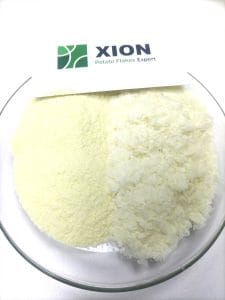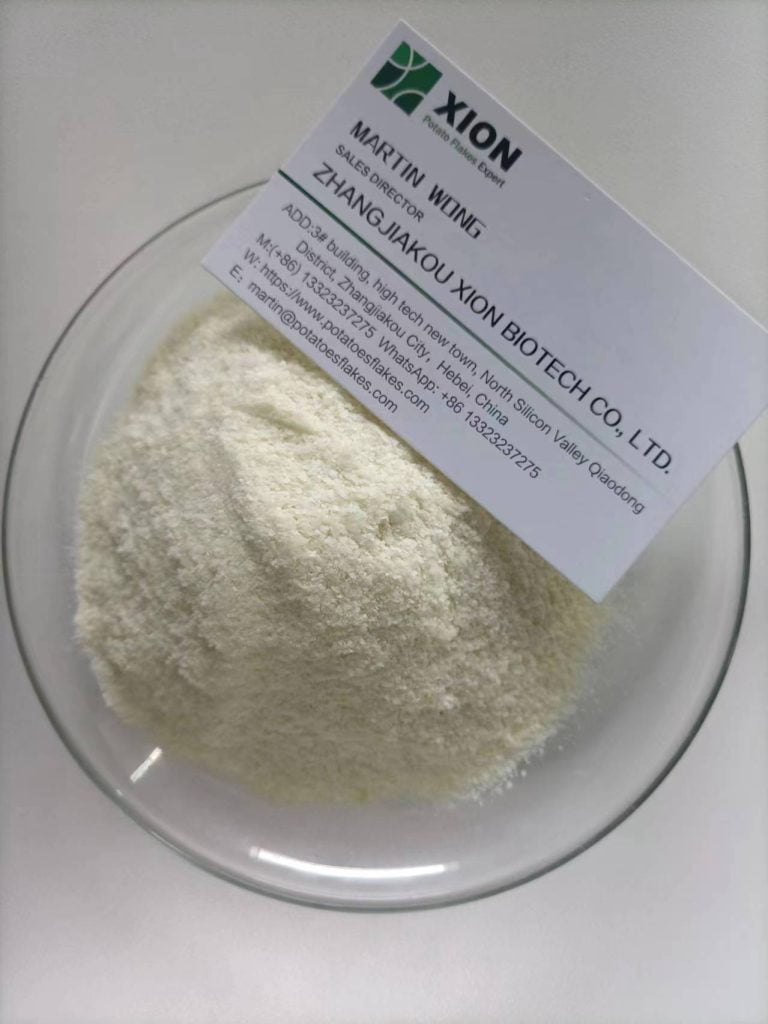If you’ve ever wondered about the differences between potato flakes and potato granules for making mashed potatoes, you’re not alone! Many people assume they’re the same product because they can be used interchangeably. However, they differ significantly in their production processes and best uses. Let’s explore these differences and determine which might be the best choice for your needs.

Differences in Production: Potato Flakes vs. Granules
Potato Flakes
The production process for potato flakes involves drum drying, which results in a unique “flaky” texture that resembles snowflakes. This process retains the potato’s original texture and produces a product ideal for a variety of culinary applications.
Potato Granules
While potato granules go through similar steps as flakes, the drying method is different. Granules are made using a “backfill spray drying” technique, similar to the method used for milk powder and soy powder. This process yields an ultra-fine, uniformly textured product with a smooth appearance. The granules are smaller and denser than flakes, making them ideal for producing smooth, creamy mashed potatoes.
Appearance and Texture
Visually, the difference is noticeable:
- Potato Flakes are irregular and flaky.
- Potato Granules are fine, uniform, and powder-like.
In terms of texture, mashed potatoes made from granules tend to be creamier and smoother, while those made from flakes have a slightly coarser texture.
Taste and Texture Differences
While the taste difference between the two is minimal, the texture can vary slightly:
- Potato Granules offer a smoother, creamier consistency.
- Potato Flakes produce mashed potatoes with a bit more body and texture.
Applications: How Are Potato Flakes and Granules Used?
Potato Flakes
Flakes are a versatile food ingredient, commonly used as a component in snacks, baked goods, and prepared foods. They’re often used by snack and baking companies as an ingredient rather than as a direct mash product.
Potato Granules
Granules, on the other hand, are specifically designed for making mashed potatoes. Major instant mashed potato brands like Idahoan, Knorr, Bob’s Red Mill, and Smash use potato granules to achieve a smooth texture in their products. For consumers looking for a direct substitute for fresh mashed potatoes, granules are typically the go-to choice.
Price Comparison
Due to the more complex production process, potato granules are generally more expensive than potato flakes. Additionally, the high demand for flakes in the food industry often results in lower prices for flakes compared to granules.
Availability in China
Interestingly, while potato flakes are widely produced in China, there are no production facilities for potato granules. This is largely due to cultural dietary habits, as mashed potatoes aren’t a staple in Chinese cuisine. Although some potato granule factories once operated in China, they eventually closed down due to a lack of demand.
Final Thoughts: Which One is Right for You?
If you’re looking for a versatile food ingredient, potato flakes are an affordable and widely available option with a variety of culinary uses. But if you want a smoother, creamier mashed potato with minimal texture, potato granules might be the better choice—just be prepared for a slightly higher price.
